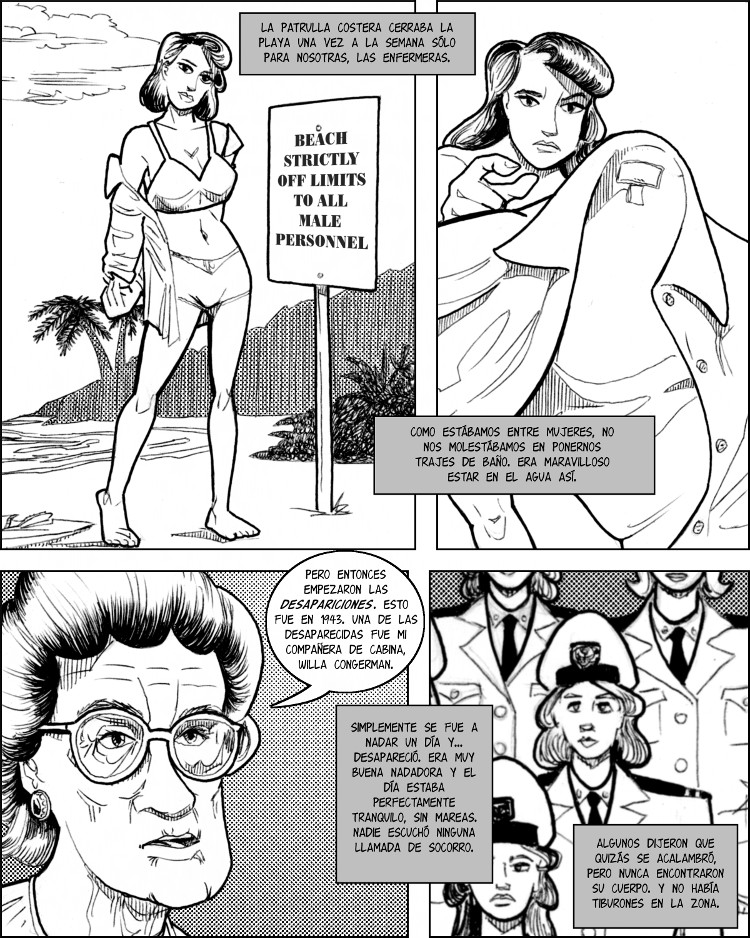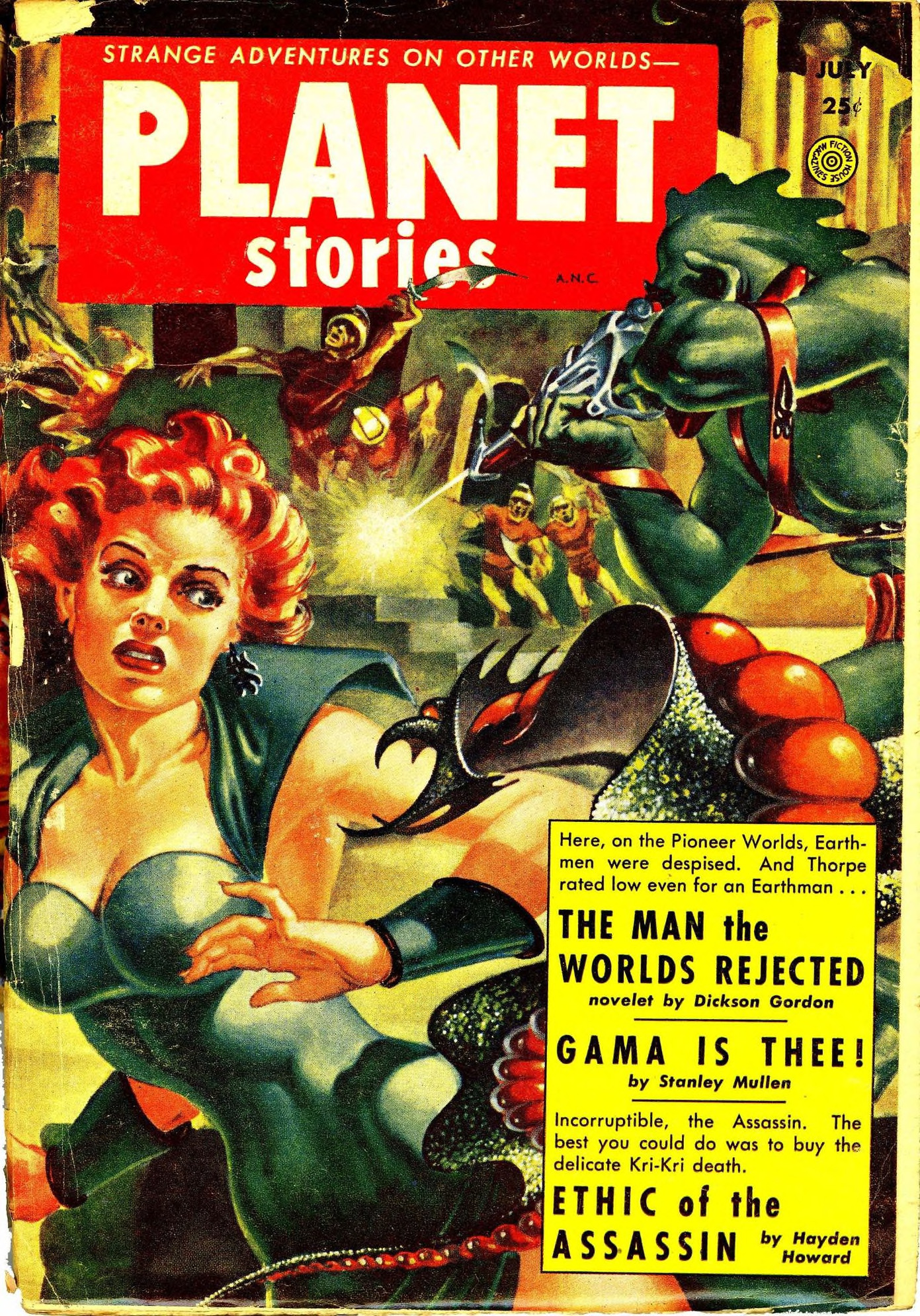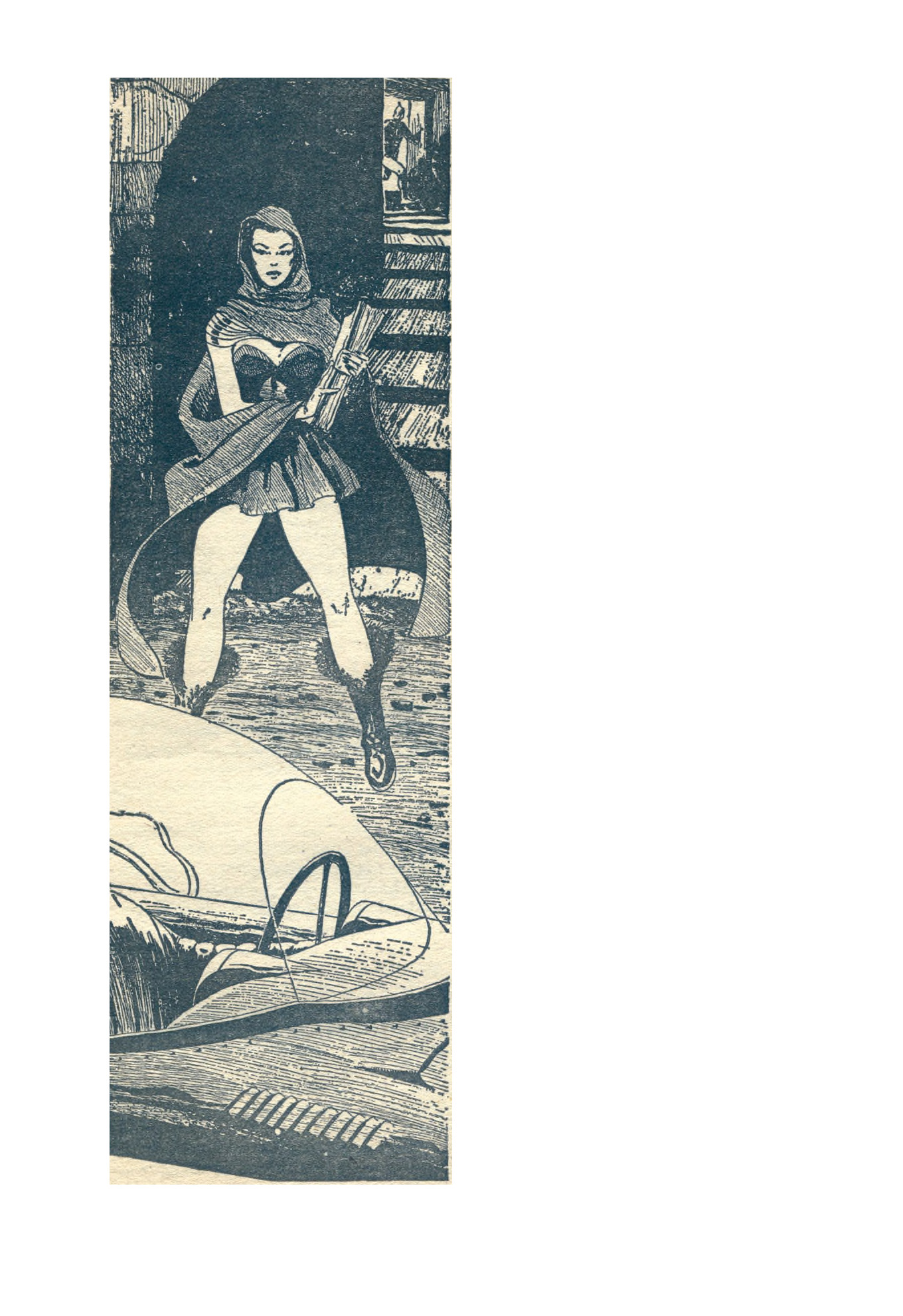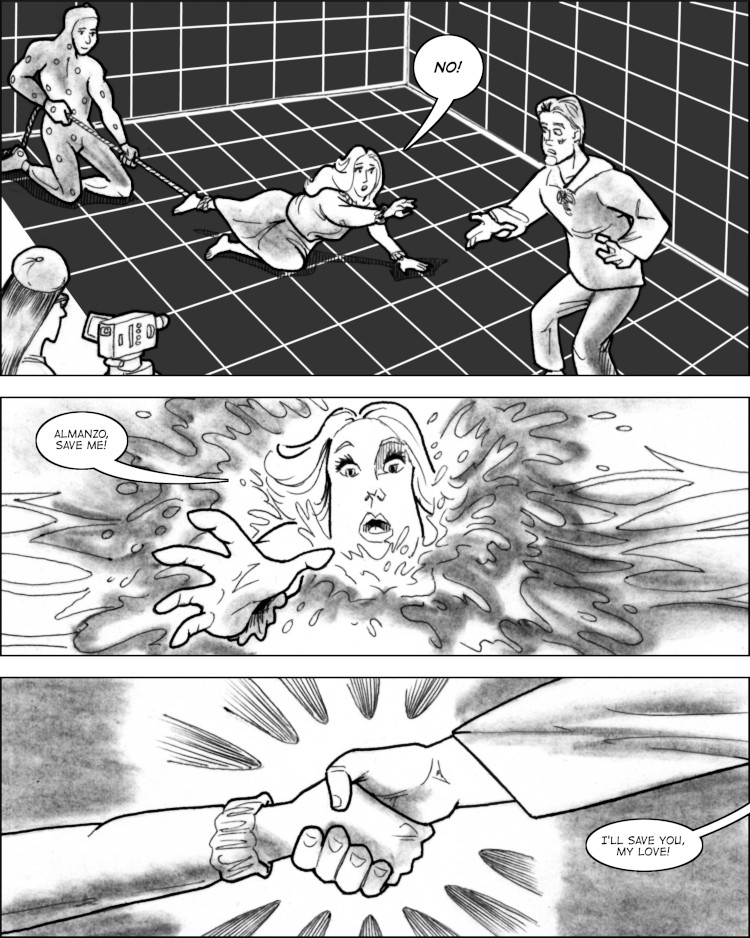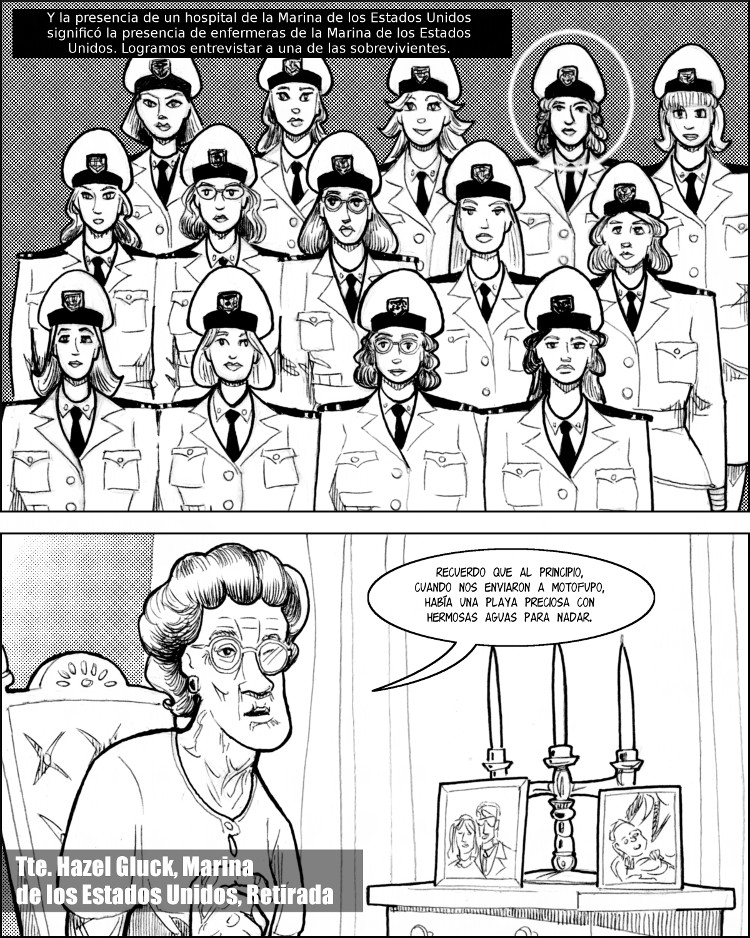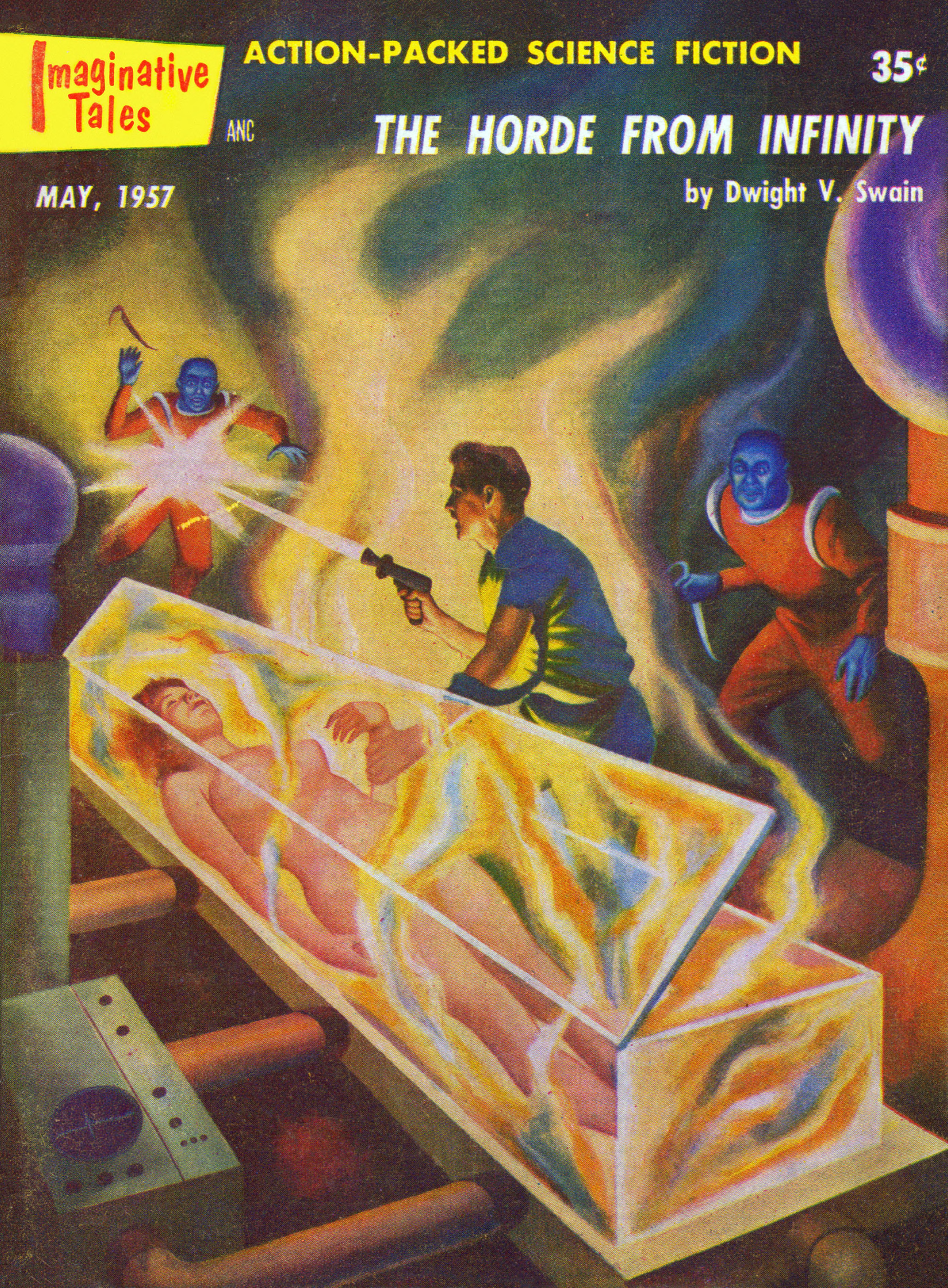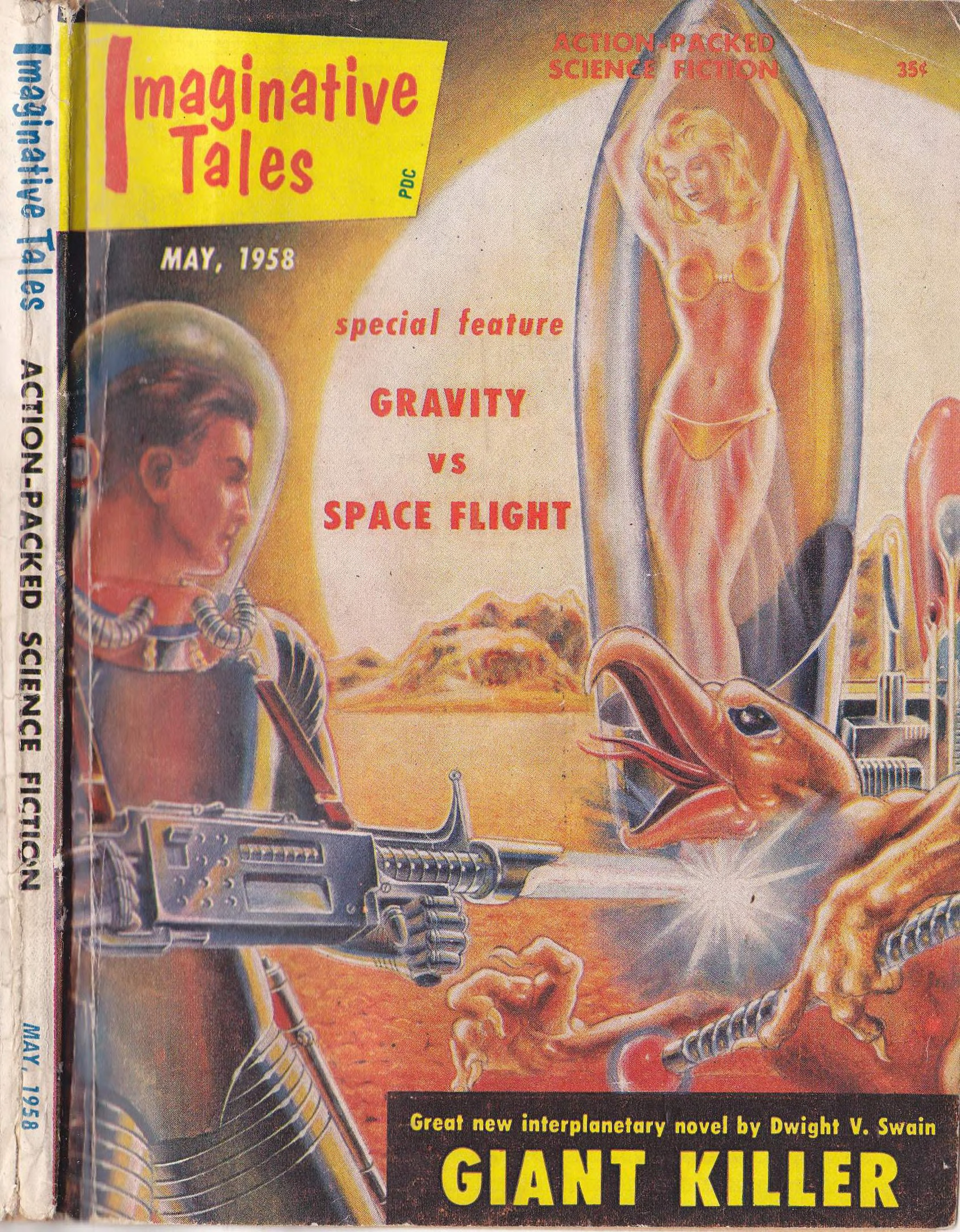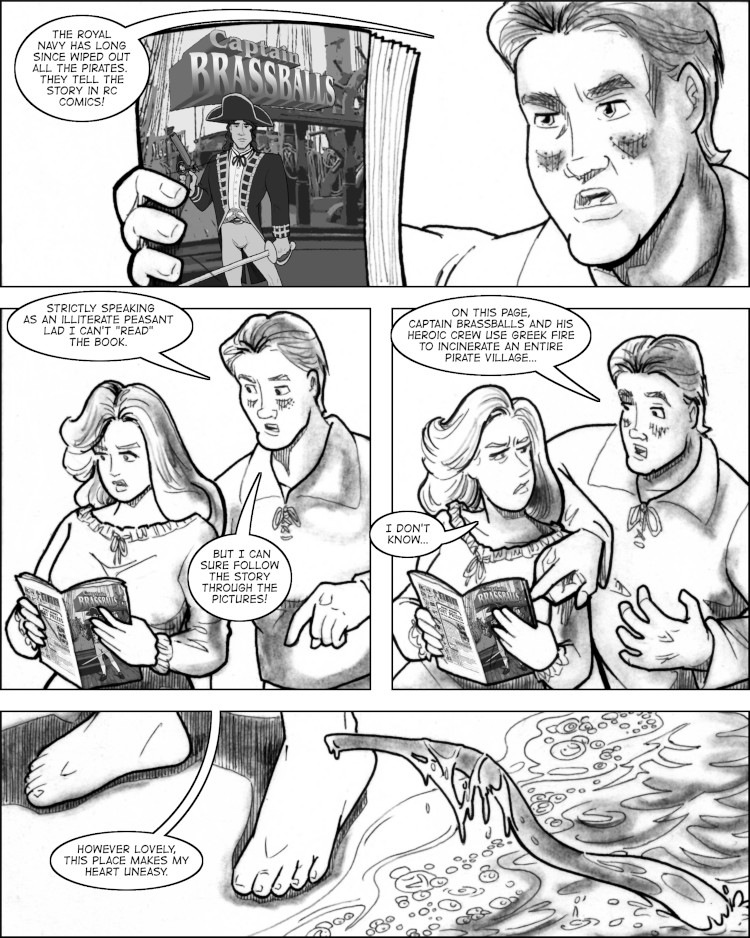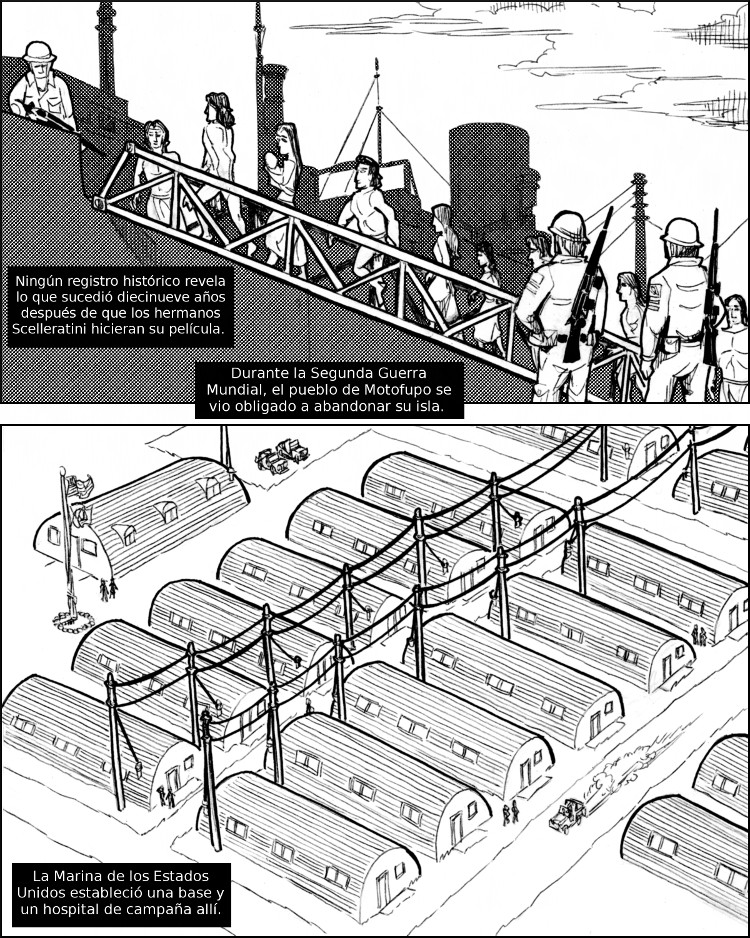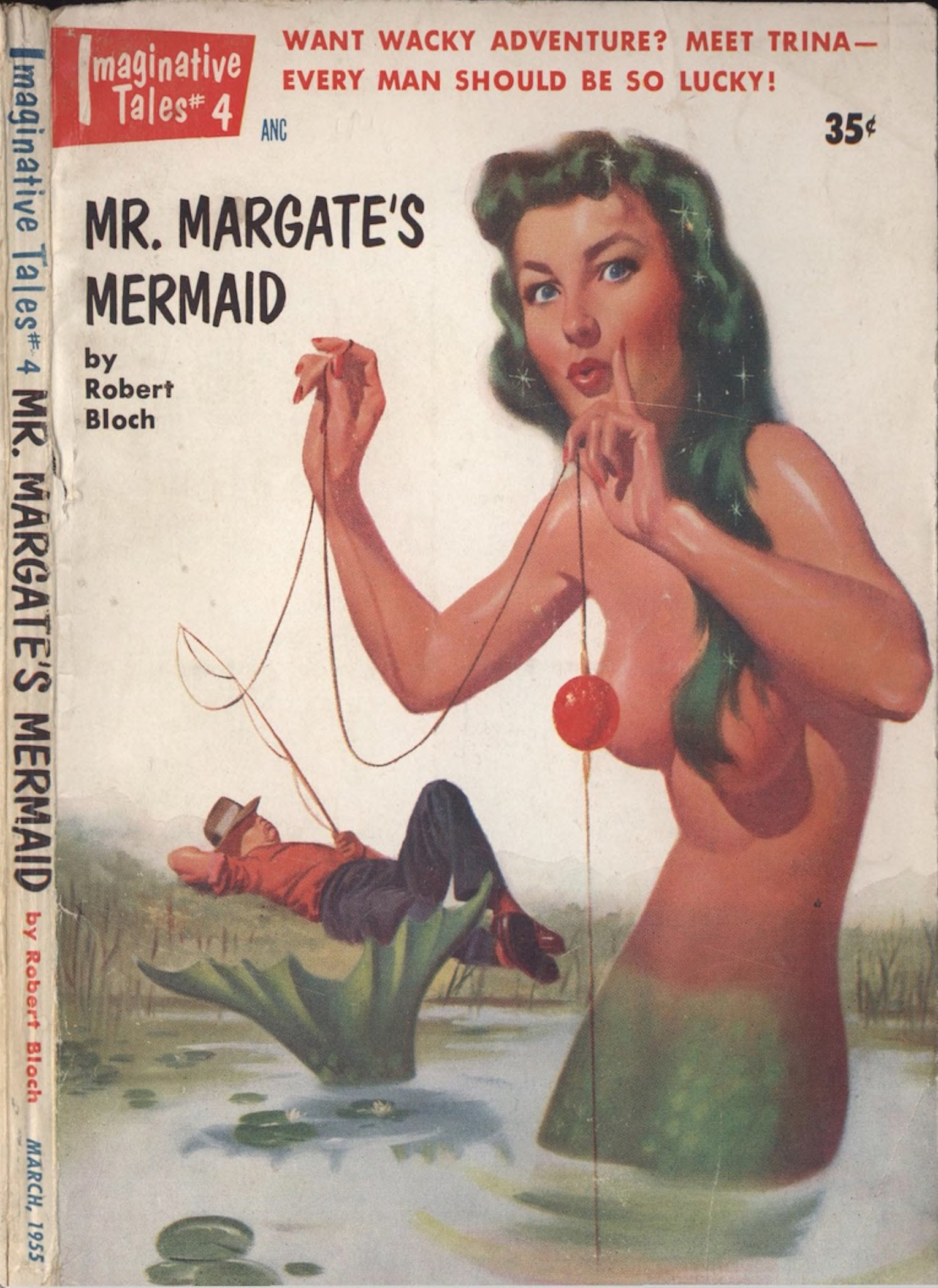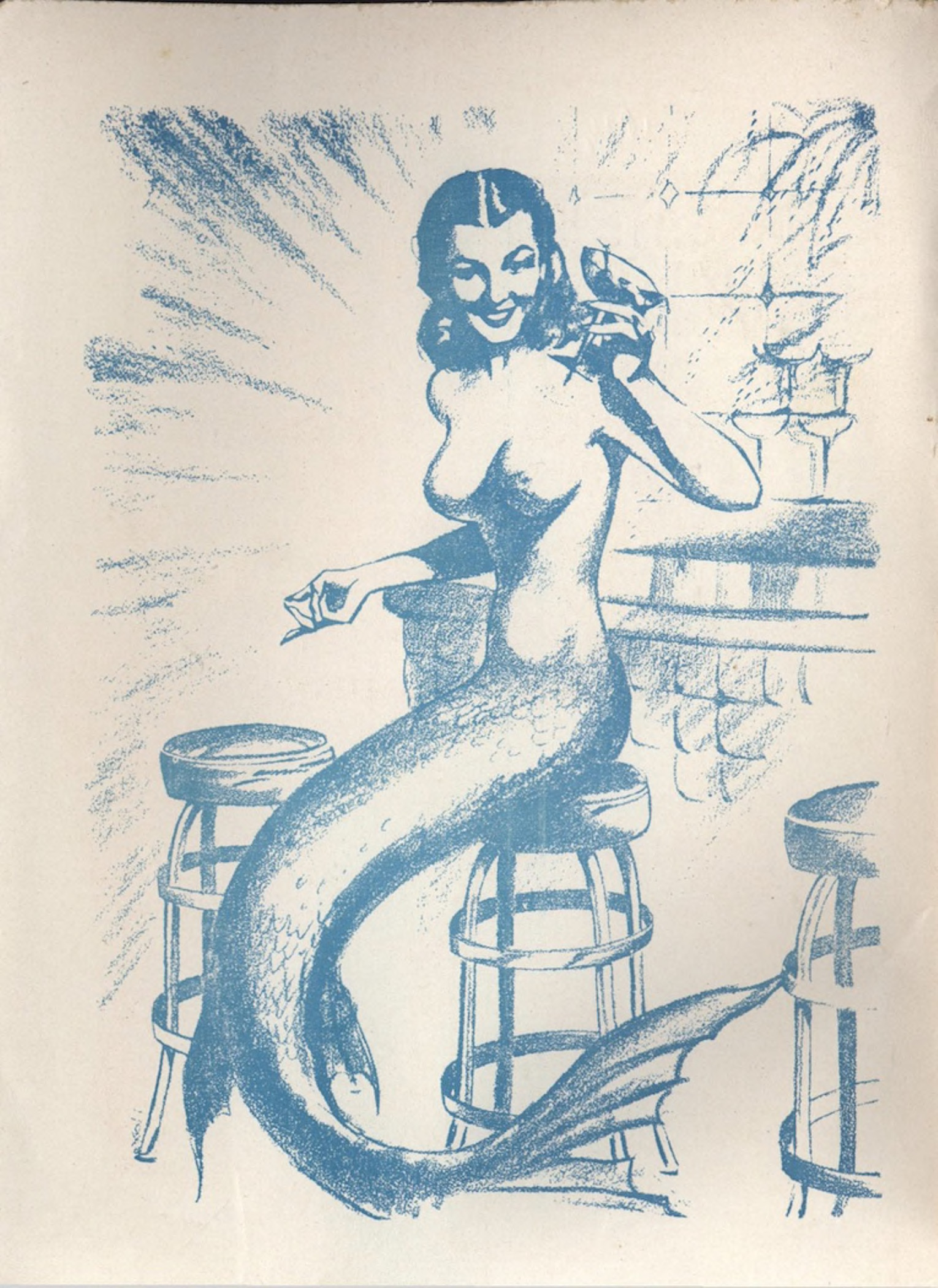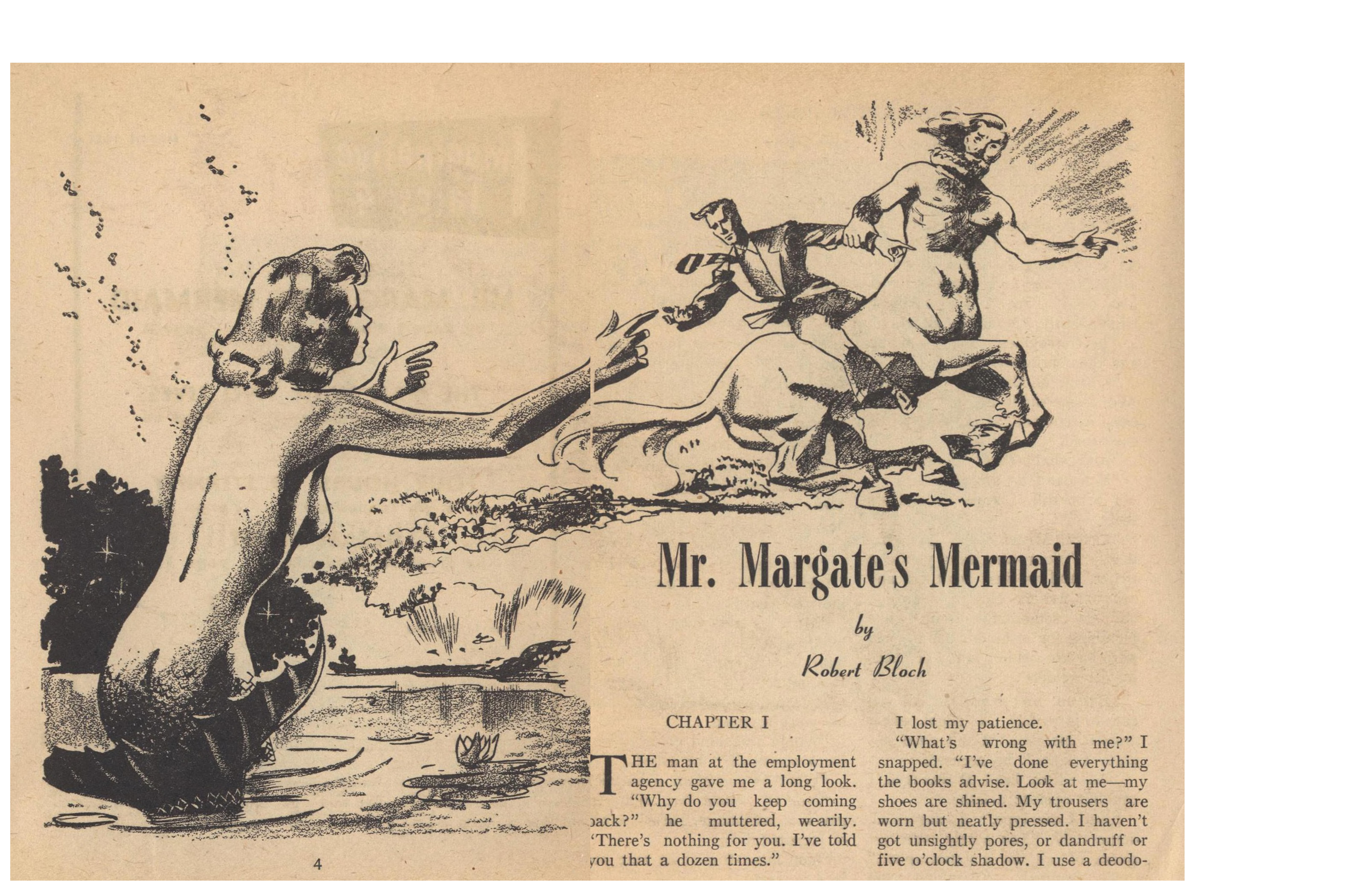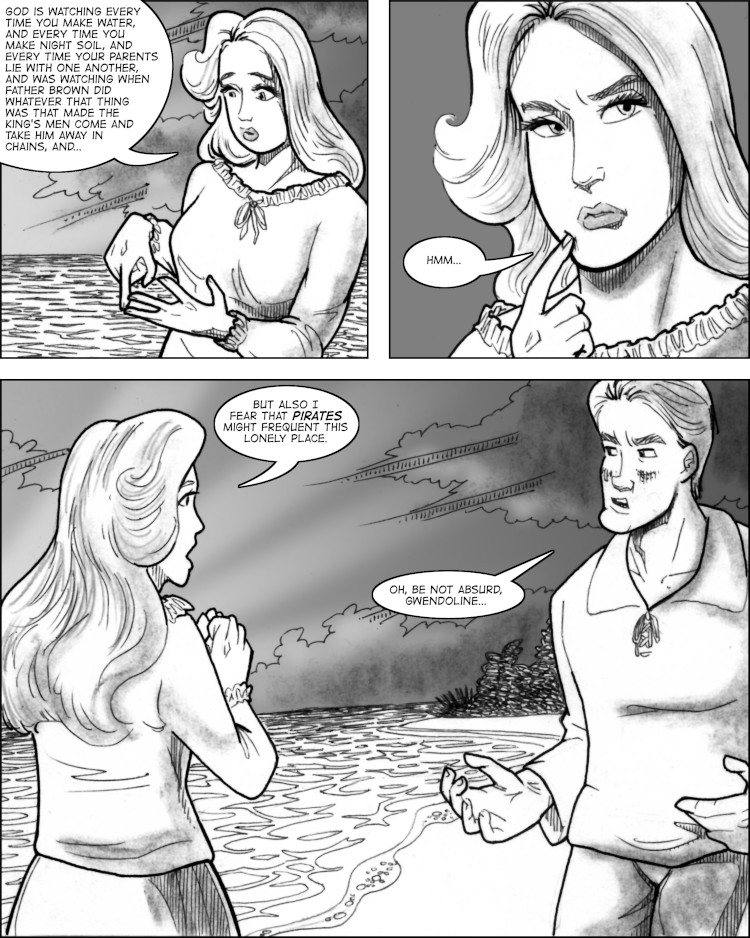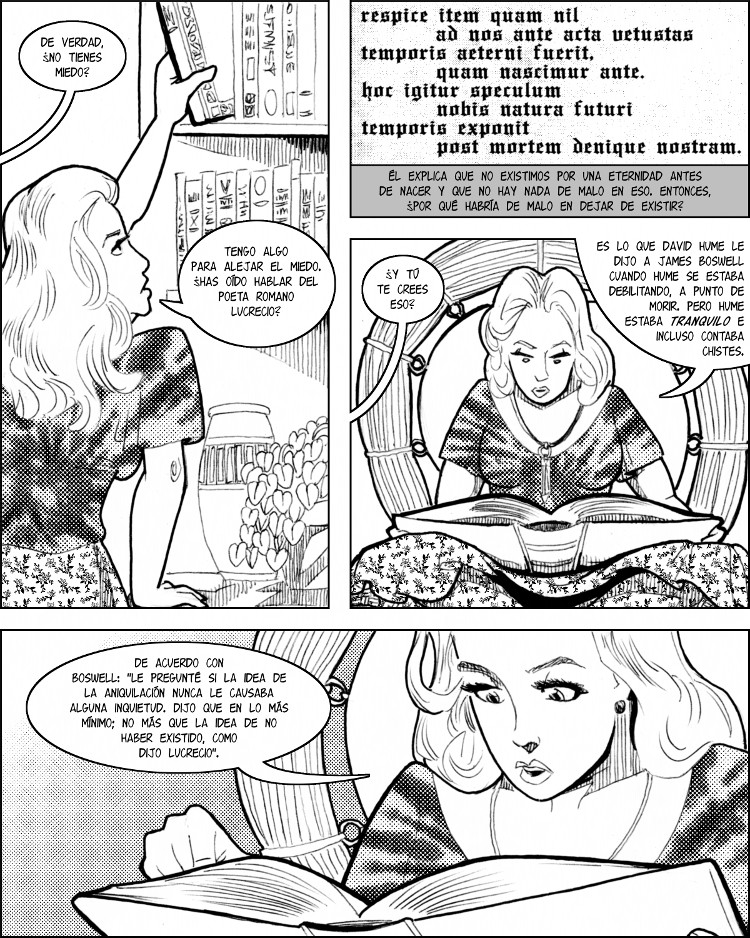
This work is licensed under a Creative Commons Attribution-NonCommercial-ShareAlike 4.0 International License.
PAGE 13 (Four panels)
Panel 1: A pretty Navy nurse in the act of taking off her uniform shirt, exposing her brassiere. She is standing on the beach next to a sign which reads BEACH STRICTLY OFF LIMITS TO ALL MALE PERSONNEL.
CAPTION – HAZEL NARRATING (1): The Shore Patrol would close the beach off once a week just for us nurses.
Comment (1): The “Shore Patrol” (SP) are an internal police force for the United States Navy, roughly equivalent to the military policy in an army.
Translation (1): La patrulla costera cerraba la playa una vez a la semana sólo para nosotras, las enfermeras.
Panel 2: The shirt of the nurse in Panel 1 flying toward the viewer. The panel should imply that it is part of a movie being filmed and that Panel 1 was an earlier frame in the same, but the nurse has noticed that she was being filmed an, in chagrin, has tossed her shirt at the camera lens, which it is about to cover.
CAPTION – HAZEL NARRATING (2): Since it was only us girls, we didn’t bother putting on bathing suits. It was wonderful to be out in the water like that.
Translation (2): Como estábamos entre mujeres, no nos molestábamos en ponernos trajes de baño. Era maravilloso estar en el agua así.
Panel 3: Another interview shot of Hazel, whose expression has darkened a bit over that in Panel 1.
Hazel (3): But then the disappearances began. This was in 1943. One of them was my cabinmate, Willa Congerman.
Translation (3): Pero entonces empezaron las desapariciones. Esto fue en 1943. Una de las desaparecidas fue mi compañera de cabina, Willa Congerman.
Panel 4: Head-and-shoulders shot of WILLA CONGERMAN (“Willa”) in the dress uniform of a Navy nurse (shoulder epaulets indicating that she has has the rank of Ensign). If possible it should be taken as a detail from Page 10, Panel 1 above.
CAPTION – HAZEL NARRATING (4): She just went swimming one day and…disappeared. She was a really strong swimmer, and it was a perfectly calm day with no tides. No one heard her call in distress.
Translation (4): Simplemente se fue a nadar un día y… desapareció. Era muy buena nadadora y el día estaba perfectamente tranquilo, sin mareas. Nadie escuchó ninguna llamada de socorro.
CAPTION – HAZEL NARRATING (5): Some said it might have been a cramp, but no one ever found a body. And there weren’t any sharks in the area.
Translation (5): Algunos dijeron que quizás se acalambró, pero nunca encontraron su cuerpo. Y no había tiburones en la zona.
![]()
![]()
![]() Carnada (Español/Versión de página larga)
Carnada (Español/Versión de página larga)
Carnada (Español/Versión deslizante)

